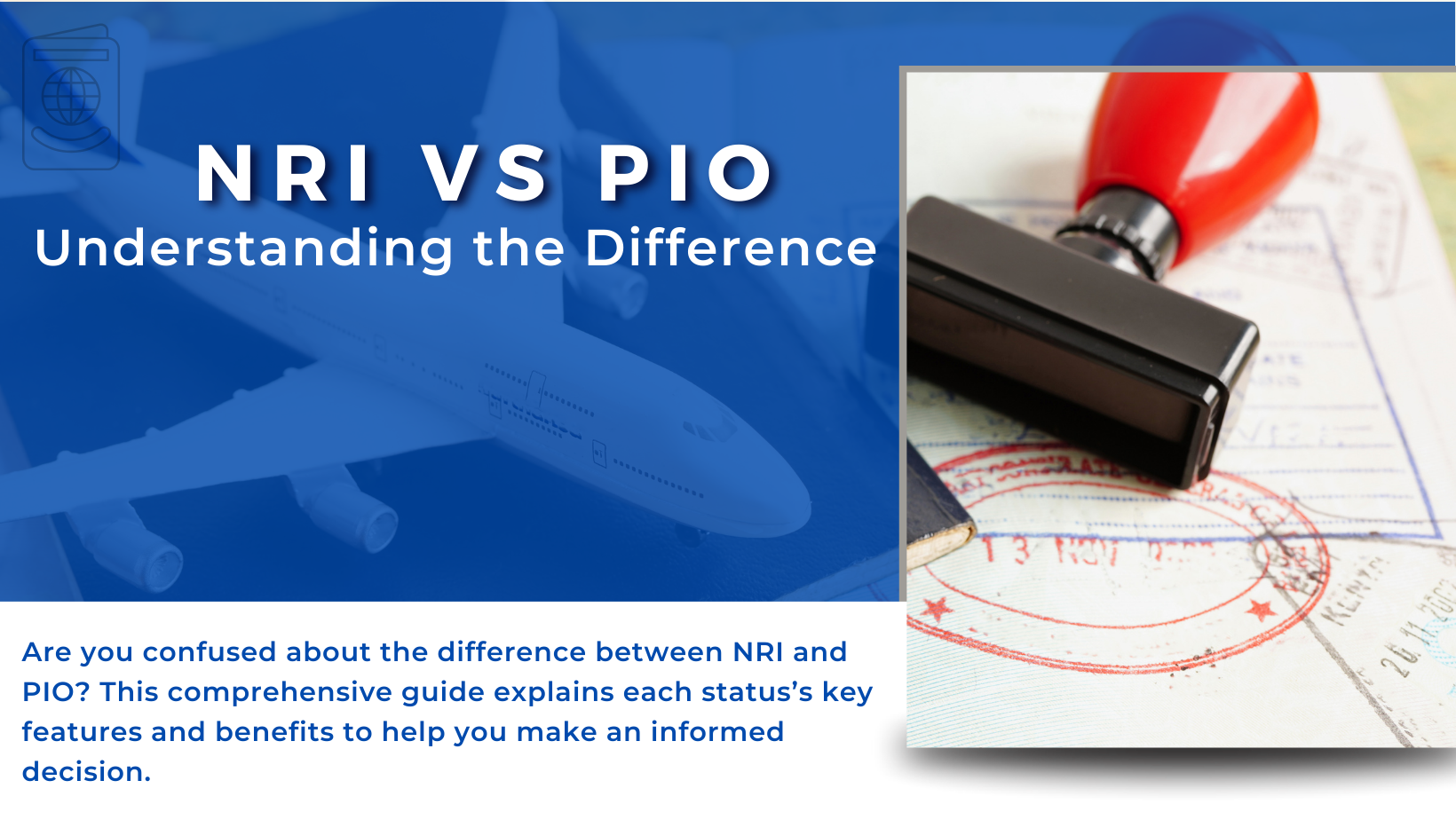As India continues to grow and develop, more and more people are exploring opportunities to live, work, and invest in the country. However, with different types of visas, residency statuses, and investment options available, it can be challenging to navigate the system and figure out what works best for you. Two common categories that are often confused are Non-Resident Indian (NRI) and Person of Indian Origin (PIO). In this blog post, we’ll clearly understand the differences between NRI and PIO, including the key features and benefits of each.
NRI vs. PIO: Key Features
Non-Resident Indian (NRI)
An NRI is an individual who holds an Indian passport but lives outside of India. This can be due to various reasons, including work, education, or personal choice. To be considered an NRI, an individual must have spent fewer than 182 days in India in a financial year or 365 days in the four years before the financial year. NRIs can invest in Indian markets, but their investments are subject to certain restrictions and may be subject to taxes on their Indian income. Additionally, NRIs are not eligible to vote in Indian elections.
Person of Indian Origin (PIO)
A PIO is an individual who is not a citizen of India but can prove their Indian origin through birth, marriage, or descent. PIOs are typically foreign nationals with at least one Indian parent or grandparent. PIOs are eligible to apply for a PIO Card, which allows them to enter and exit India without a visa for up to 15 years. PIOs can also open a Non-Resident External (NRE) account, which allows them to hold and transfer their income earned outside India in Indian currency. Additionally, PIOs can invest in Indian markets without restrictions and are eligible to vote in Indian elections.
NRI vs. PIO: Key Benefits
Non-Resident Indian (NRI)
- Access to Indian markets: NRIs can invest in the Indian stock market, mutual funds, and other investment vehicles. However, their investments are subject to certain restrictions and may be subject to taxes on their Indian income.
- Taxation: NRIs are taxed differently than Indian residents. For example, they are not taxed on foreign income, but they may be taxed on income earned in India.
- Banking: NRIs can open an NRE account, which allows them to hold and transfer foreign currency into India. They can also open a Non-Resident Ordinary (NRO) account, which allows them to hold income earned in India in Indian currency.
- Repatriation: NRIs can repatriate their income earned in India to their country of residence, subject to certain conditions.
Person of Indian Origin (PIO)
- Visa-free travel: PIOs are eligible for a PIO Card, which allows them to enter and exit India without a visa for up to 15 years.
- Investment: PIOs can invest in Indian markets without restrictions.
- Banking: PIOs can open an NRE account, which allows them to hold and transfer their income earned outside India in Indian currency.
- Voting rights: PIOs are eligible to vote in Indian elections.


